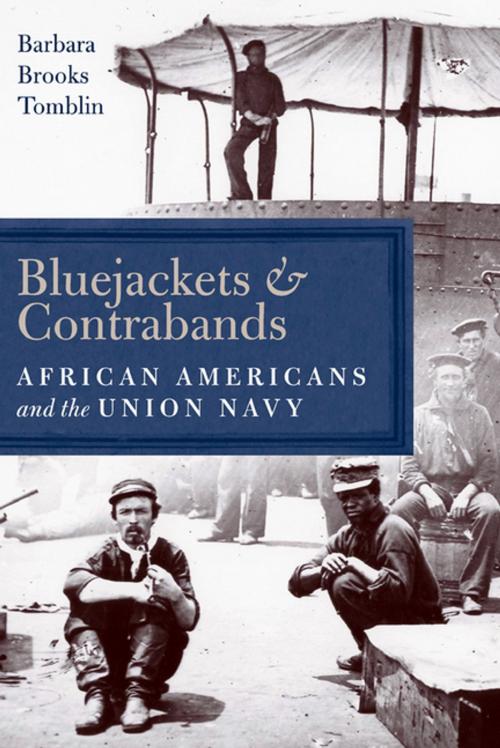Bluejackets and Contrabands
African Americans and the Union Navy
Nonfiction, Social & Cultural Studies, Social Science, Cultural Studies, African-American Studies, History, Americas, United States, Civil War Period (1850-1877), Military| Author: | Barbara Brooks Tomblin | ISBN: | 9780813139272 |
| Publisher: | The University Press of Kentucky | Publication: | February 1, 2010 |
| Imprint: | The University Press of Kentucky | Language: | English |
| Author: | Barbara Brooks Tomblin |
| ISBN: | 9780813139272 |
| Publisher: | The University Press of Kentucky |
| Publication: | February 1, 2010 |
| Imprint: | The University Press of Kentucky |
| Language: | English |
One of the lesser known stories of the Civil War is the role played by escaped slaves in the Union blockade along the Atlantic coast. From the beginning of the war, many African American refugees sought avenues of escape to the North. Due to their sheer numbers, those who reached Union forces presented a problem for the military. The problem was partially resolved by the First Confiscation Act of 1861, which permitted the seizure of property used in support of the South's war effort, including slaves. Eventually regarded as contraband of war, the runaways became known as contrabands. In Bluejackets and Contrabands, Barbara Brooks Tomblin examines the relationship between the Union Navy and the contrabands. The navy established colonies for the former slaves and, in return, some contrabands served as crewmen on navy ships and gunboats and as river pilots, spies, and guides. Tomblin presents a rare picture of the contrabands and casts light on the vital contributions of African Americans to the Union Navy and the Union cause.
One of the lesser known stories of the Civil War is the role played by escaped slaves in the Union blockade along the Atlantic coast. From the beginning of the war, many African American refugees sought avenues of escape to the North. Due to their sheer numbers, those who reached Union forces presented a problem for the military. The problem was partially resolved by the First Confiscation Act of 1861, which permitted the seizure of property used in support of the South's war effort, including slaves. Eventually regarded as contraband of war, the runaways became known as contrabands. In Bluejackets and Contrabands, Barbara Brooks Tomblin examines the relationship between the Union Navy and the contrabands. The navy established colonies for the former slaves and, in return, some contrabands served as crewmen on navy ships and gunboats and as river pilots, spies, and guides. Tomblin presents a rare picture of the contrabands and casts light on the vital contributions of African Americans to the Union Navy and the Union cause.















